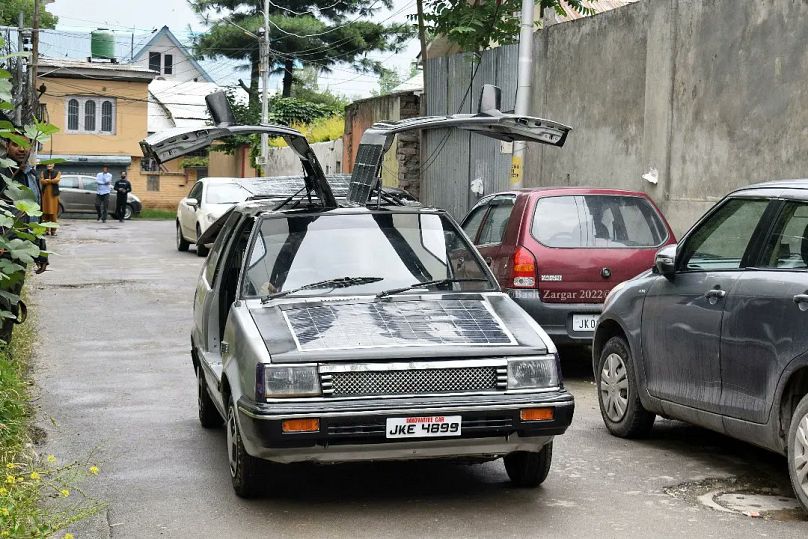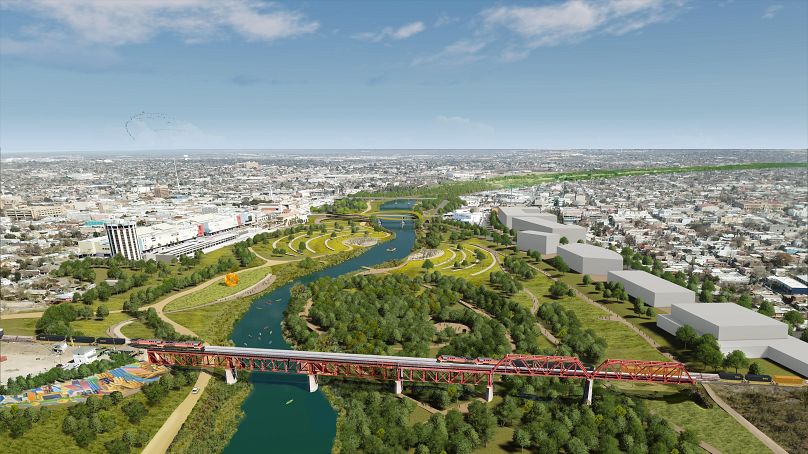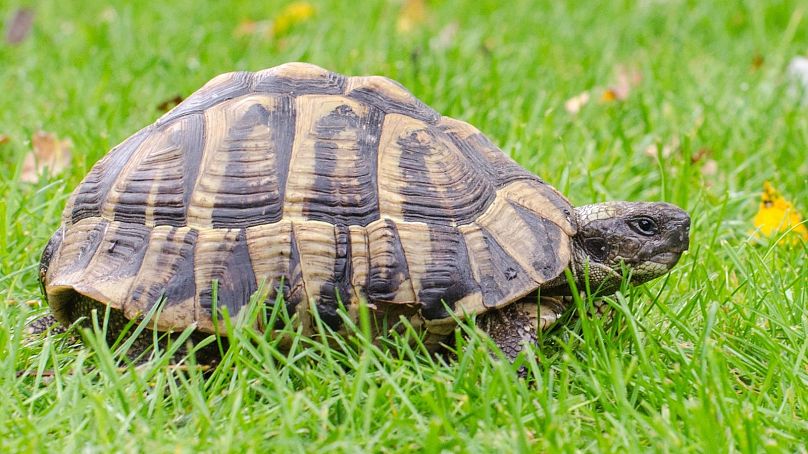Five cheering news stories that make you feel better about the world, handpicked by our team.
As we do every Friday, the Good News team brings you a handpicked selection of five positive news stories that make you feel better about the world.
We start with an inspiring human, the Indian maths teacher who has single-handedly built a solar-powered car.
- Malaria is Africa’s number one killer, but its days may be numbered, according to scientists.
- A binational park will be built between Mexico and the United States, serving as a prototype for border cities.
- Giant tortoises might provide clues on how to improve the ageing process.
- The Georgian hero dog provides a useful service to nursery-school children.
Watch the video above for more on each story (we highly recommend), or read on below…
1. ‘I could have been India’s Elon Musk’: The maths teacher who built a solar car from scratch
As the world’s first production-ready solar car hits the headlines with an eyewatering price tag of €250,000, a maths teacher in India’s Kashmir Valley has simply built his own.
Father of two Bilal Ahmed has gone viral with his creation, which took him 11 years to make.
His aim was to build a ‘luxurious’ and sustainable vehicle that is not just for the super-wealthy. He managed this without any external funding, spending a little over €18,000 to build the fully automatic car.
“If I had got the necessary support, perhaps I would have been the Elon Musk of Kashmir,” he said to reporters.
Nearly every available surface of the car is covered in solar panels, and – like the DeLorean time machine in Back to the Future – it has gull-wing doors, which open up to face the sky and catch as many rays as possible. And the panels are efficient on low sunlight days too.
Mr Ahmed has now received support from the innovation centre at the National Institute of Technology in Srinagar and is hoping to start a company to mass-produce the vehicles, which could also be a golden employment opportunity for young people in the region.
Get the full story written by Euronews’ Lottie Limb, here.
2. Malaria’s days may be numbered
In Africa, malaria is a far bigger threat than COVID-19. It is the leading killer of under-fives across the continent.
But trials for a new vaccine suggest an end to the death toll could be in sight.
The World Health Organization has already endorsed one malaria jab for widespread use, and there should soon be a second.
Experts say it is worth the wait, and the new R21 jab is the first to exceed the WHO efficiency target of 75 per cent. In a 2019 trial in Burkina Faso it demonstrated high-level efficacy of 77 per cent, results expected to be echoed at the end of a larger trial in four African countries.
The Serum Institute of India, the world’s largest vaccine manufacturer, says it's set to deliver at least 200m doses annually – the scale necessary to beat malaria.
Adrian Hill, director of the Jenner Institute at Oxford University – the birthplace of the AstraZeneca COVID-19 vaccine – believes that R21 could reduce deaths substantially from next year, and by as much as 75 per cent by 2030.
3. A binational park will be built between Mexico and the United States, serving as a prototype for border cities
The Binational River Conservation Project will connect the cities of Laredo in Texas, USA and Nuevo Laredo in Tamaulipas, Mexico.
It will incorporate more than 10km of land along the Rio Bravo river, which separates the two cities.
The park, an initiative driven by the two countries, will celebrate the unique relationship between the two cities and the river they share, helping to restore and revitalise the river ecosystem and attract tourists.
“The idea of the park actually emerged decades ago, when people in the community began to think about how we can celebrate our binational heritage. If you go back to the 1800s, the two cities, Laredo and Nuevo Laredo, the sister city across the river in Mexico, was actually one nation called the Republic of the Rio Grande,” explains Richard Archer, lead architect at Overland Partners, the firm behind the project, unanimously chosen by the Mexican and American representatives.
The planning has also been an exercise in diplomacy.
Overland Partners held a three-day session with representatives from both nations, including border patrol agencies, to discuss issues of security, community, economy, environment and ecology, economy and culture.
“The narrative is about creating community, but that doesn't take away from enforcing security, and they come hand-in-hand. And that's the narrative that we are pushing here, because you can have a very united border and still be secure,” said Barbara Warren, project manager at Overland Partners Architects.
The idea is a place where people from both nations “could gather and be reunited as family and friends, celebrate weddings… [having] kids in the areas, market festivals and really make it an active part of their life just like they used to be,” adds Archer.
Overland Partners say they have been working with border patrol and customs on both sides to allow citizens from both nations access to the shared green space on the bridge without documentation, "visitors will be able to move freely in this area and back home but would have to go through security/customs to enter the other country," explains Archer.
The designers say they see the park as an "abrazo" – a hug – between the two cities.
“This park will not just help Laredo and Nuevo Laredo, but really help our international relations become a model for the world.”
4. Giant tortoises might provide clues on how to improve the ageing process.
No matter how many fruits or veggies we eat or how many hours of yoga we practise, our bodies stiffen as we age.
However, species like Galápagos giant tortoises – a new one of which came back from the dead a few weeks ago – seem untouched by the ravages of ageing.
Scientists have discovered there is a lot we can learn from them.
Two groups of researchers set up an investigation into age-related decline in 52 species of captive turtles and tortoises.
The team used decades of monitoring data to analyse factors, such as metabolism, and they found that 75 per cent of the species exhibited ‘insignificant senescence’, meaning few signs of the process by which a cell ages. And some species, such as Greek tortoises, even displayed negative rates of senescence, meaning their mortality risk decreased as they aged.
“If we continue to study the evolution of ageing in turtles, at some point we’ll find a clear connection between turtles and human health and ageing,” according to Dr Rita da Silva, a biologist at the University of Southern Denmark.
While these lumbering reptiles cannot outpace death, they may hold insights for prolonging longevity and decreasing age-related decline.
In other words, helping us to age more gracefully and happily.
5. The Georgian hero dog that provides a useful service to nursery-school children.
A neighbourhood stray dog by the name of Kupata (meaning “Sausage”), has become a local celebrity for his volunteer services in helping kindergarteners safely cross the road.
The dog was awarded a “People’s Choice” in Batumi, Georgia, after being filmed trotting alongside a group of children and barking at cars as they approached the pedestrian crossing. Kupata has become a social media hit, and now has his own Instagram account.
And if you're still hungry for more positive news, there's more above…














